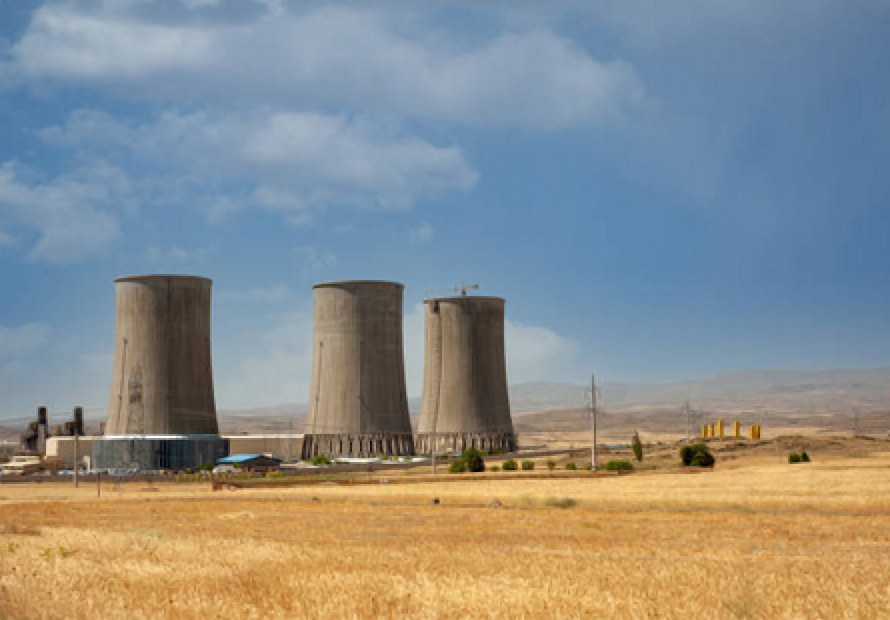- Web
- Feb 20, 2026
Iran halts installation of IAEA cameras at nuclear facilities
-

- Web Desk
- Jun 29, 2025

TEHRAN: Iran announced on Sun day that it will no longer allow the installation of cameras by the International Atomic Energy Agency (IAEA) at its nuclear facilities, a few days after the Israel-Iran War ended.
Deputy Speaker of the Iranian Parliament, Hamid-Reza Haji Babaee stated that the Director General of the IAEA will not be granted access to the critical nuclear sites.
Read more: Iran FM says non-cooperation with IAEA is now law
Iran’s nuclear ambitions have long been a focal point of international scrutiny. The country maintains that its nuclear programme is intended solely for peaceful purposes, including energy production.
The IAEA and several analysts claim that Iran’s current uranium enrichment levels exceed what is necessary for civilian use. It has reportedly reached the highest known levels among countries without military nuclear programme.
Several international actors now claim that Iran is moving closer to developing nuclear weapons, particularly as tensions still simmer with the occupying regime, its ally the United States, and European nations.
Iran’s nuclear programme began in the 1950s under the Pahlavi dynastic with the US support, and expanded in the 1970s with the plans for power reactors.
Following the 1979 Iranian Revolution, the programme was largely halted but resumed secretly during the Iran-Iraq War in the 1980s.
Undeclared enrichment sites at Natanz and Arak were exposed in 2002, followed by the revelation of the Fordow underground facility in 2009.
In 2003, Iran suspended its formal nuclear weapons programme, stating that its activities were for peaceful purposes. However, the IAEA and several western analysts criticised the Islamic regime for these claims.
As of May 2024, Iran was reportedly producing enriched uranium at 60 per cent purity and accelerating its nuclear advancements by installing more advanced centrifuges.
The Western countries imposed crippling sanctions on Iran for its nuclear ambitions, which has in several years impacted its economy, particularly restricting oil exports and limiting access to global financial systems.
Covert operations, such as the Stuxnet cyberattack in 2010, aimed to disrupt the programme.
During US President Obama’s presidency, there was a breakthrough. The Joint Comprehensive Plan of Action (JCPOA) was signed in 2015, imposing strict limitations on Iran’s nuclear programme in exchange for sanctions relief.
However, the conservative, Israel-allied US President Trump withdrew from the agreement in 2018 despite international monitors stating that Iran had complied with all the regulations.
Trump also reposed crippling sanctions which further decimated Iranian economy. Infuriated, the Islamic regime restarted and expanded its nuclear programme, with enriched uranium stockpiles exceeding JCPOA limits by significant margins.
In October 2023, an IAEA report estimated that Iran had increased its uranium stockpile 22 times over the 2015 agree JCPOA limit.
The UN nuclear watchdog also found Iran non-compliant with its nuclear obligations for the first time in 20 years on June 12, 2025.
During the fragile US-Iran talks in June 2025, Israel suddenly launched attack on Iran, killing its elite military personnel and scientists, while targeting its nuclear sites. Israel was accused of deliberately sabotaging the talks as one of Iran’s lead negotiator was killed in the strikes.
Iran and the occupying regime entered into almost a fortnight of fight, with each side launching drones and missile strikes on each other. Israel killed over 430 Iranians, while less than 30 Israelis were killed.
Iran also launched a new enrichment site and installed advanced centrifuges.
The situation further escalated when, under Israeli pressure, Trump ordered an attack on Iran’s three main nuclear sites: Fardow, Natanz and Esfahan.
However, tensions quickly de-escalated as Trump made a surprise announcement of a ceasefire, which Iran and Israel begrudgingly accepted hours later.
Read more: Iran holds funeral for commanders and scientists killed in war with Israel
Despite the lull in tensions, Iran has vowed to continue its programme, with an enraged Trump rescinding a sanctions relief package offer and threatening to strike Iran again if its government didn’t agree to stop pursuing its nuclear programme.
Iranian government recently made it a law to not cooperate with the IAEA, further straining the situation.




